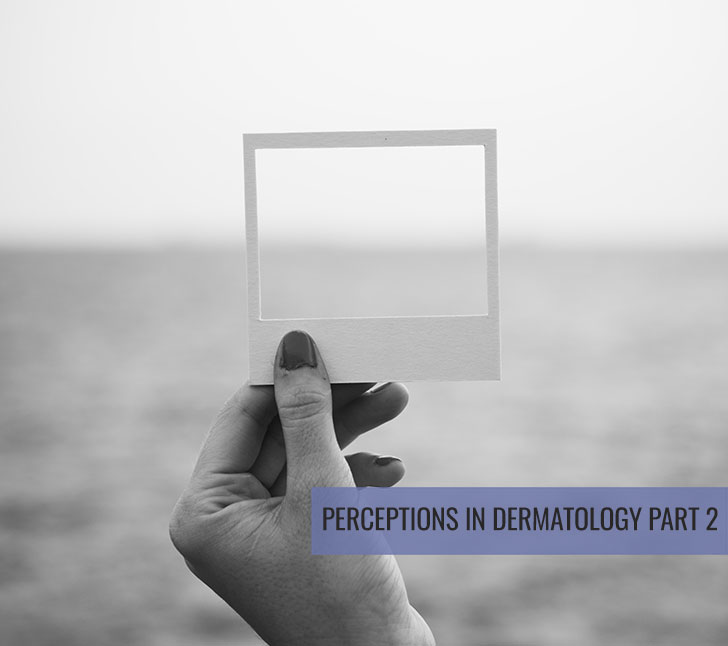In Part II of our series about perception of dermatologists, Dr. Angelo Landriscina explores how dermatology is viewed by physicians in other specialties, and how it might affect patient care. Be sure not to miss “Perceptions in Dermatology Series – Part 1: How Does the Public View Dermatology?”.
Once I learned about the data showing how the lay public views dermatology, I couldn’t help but wonder if this was reflected by physicians in other specialties as well. I am sure that most of us have examples of our own experience showing that other physicians may have some of the same notions as the public, and surveys of physicians in other specialties have shown that some of the public perceptions that I talk about in Part I of this series really do spill over into the medical realm. The American Academy of Dermatology tried to gauge the perception of doctors in other specialties in a series of surveys in 2011, and their results showed that our non-dermatological counterparts view us as more interested in surgical or cosmetic procedures rather than taking care of patients with chronic issues. They also seemed to feel that dermatologists are decreasing access to care by establishing more cash-only practices. Taking these results together with what we can see in the public sphere, we see a unified public image of our specialty — physicians more interested in procedures and aesthetics, as well as the money they may bring rather than taking care of patients with complex medical dermatologic conditions.
One may wonder how we can combat this image, and the AAD seems to be taking some steps when it comes to illustrating the scope and importance of dermatology to our peers in other medical specialties through their SkinSerious initiative. Through an informative website and newsletter, this initiative underscores the importance of dermatology to our patients’ overall health and emphasizes the teamwork needed in order to holistically care for patients with complex medical and dermatologic problems. A look at their website reveals personal stories of patients whose course of illness was altered by the intervention of a dermatologist, like one whose hepatitis C diagnosis was made after a dermatology visit for chronic itching. Other resources from the initiative seek to educate providers about how disorders of the skin may affect other organ systems and vice versa, such as the increase risk of ocular diseases in patients with eczema or the higher incidence of skin cancer in patients who have undergone organ transplants.
While there is no doubt that initiatives like SkinSerious are important to changing perceptions about our specialty, we will still need to do more work to elucidate exactly how public perception got to where it is, the ways that some of the most common misconceptions may be affecting patient care and what steps should be taken to highlight the true nature of dermatology to the public and our peers. Using this information to demystify our specialty can only help increase awareness and access for the patients we serve.

